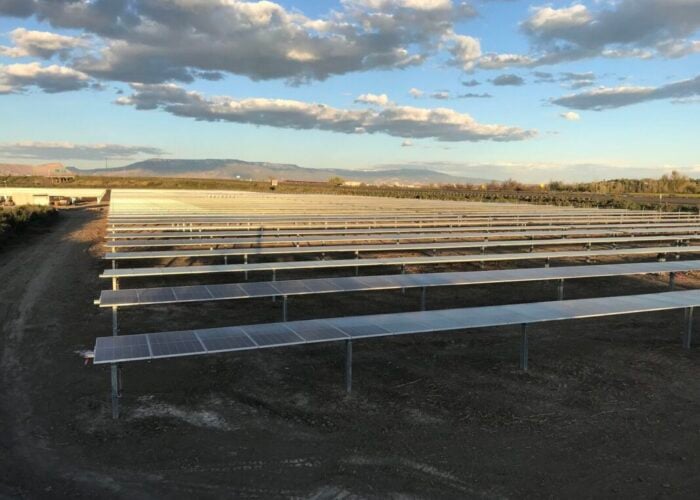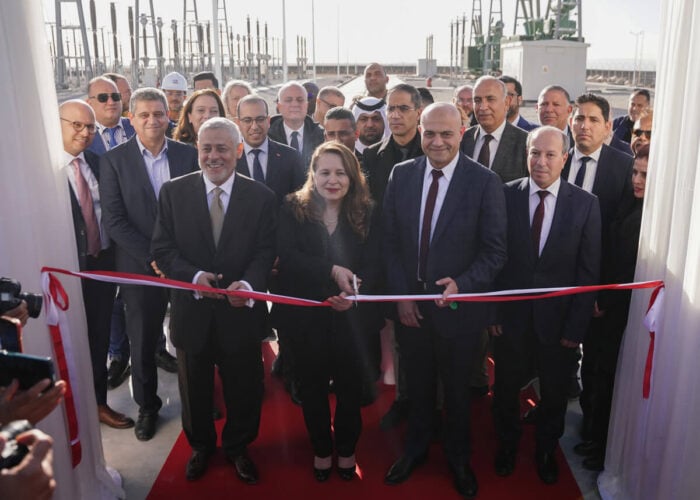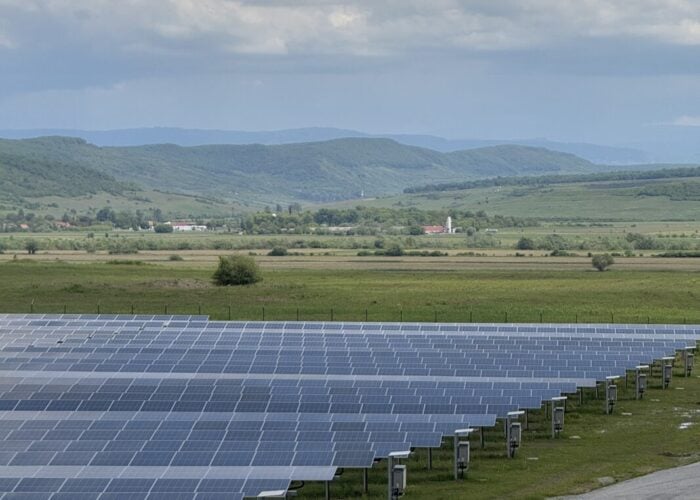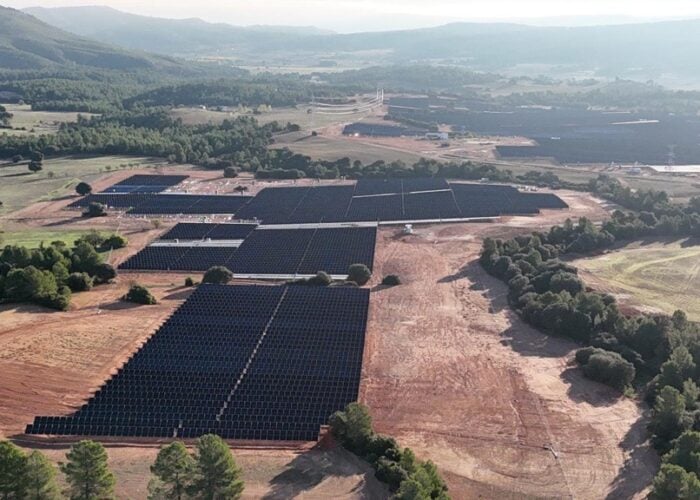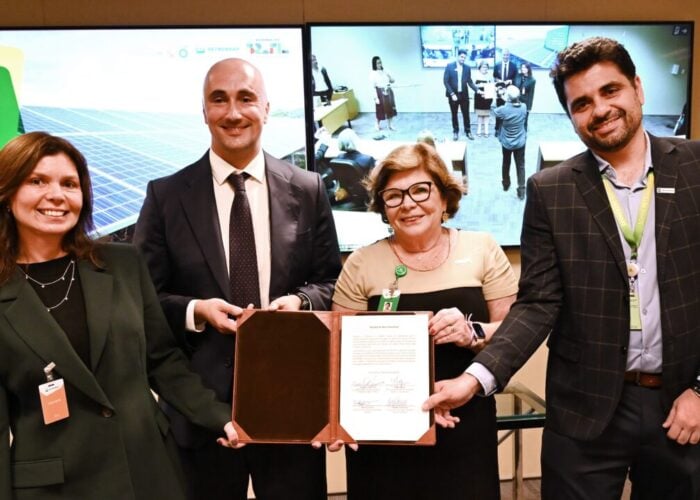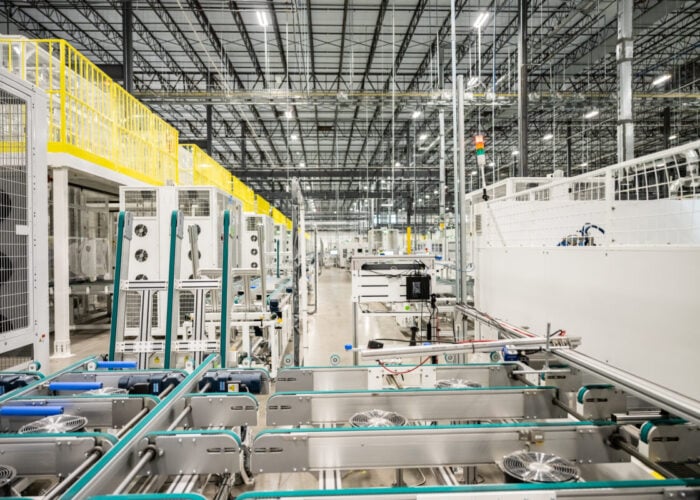President Barack Obama's US$7 billion initiative to bring power to the African people was launched in celebratory mood at the end of last month.
Power Africa aims to add more than 10,000MW of cleaner, more efficient electricity generation capacity over five years. At least 20 million more households and commercial entities will be electrified from the grid, distributed generation or mini-grids. Ethiopia, Ghana, Kenya, Liberia, Nigeria and Tanzania are the first to participate in the initiative, which has already levered US$9 billion from private industry.
Try Premium for just $1
- Full premium access for the first month at only $1
- Converts to an annual rate after 30 days unless cancelled
- Cancel anytime during the trial period
Premium Benefits
- Expert industry analysis and interviews
- Digital access to PV Tech Power journal
- Exclusive event discounts
Or get the full Premium subscription right away
Or continue reading this article for free
The roll call of companies already recruited to the cause is impressive. General Electric has committed to help bring online 5MW of “new, affordable energy” in Tanzania and Ghana. Symbion Power will invest US$1.8 billion to develop 1,500MW of new energy projects in Africa over five years. GE and Symbion have signed a joint agreement to develop a 400MW natural gas power plant in Tanzania that will take a small amount of the country's as yet untapped reserves.
Although the White House says the aim is to power Africa with “cleaner energy” it would seem from the list of named projects that the focus is indeed natural gas, hydro and some wind. That's a good strategy if all you want to achieve is a reduction in coal-fired electricity. South Africa, the continent's most advanced economy, after all, is 93% powered by coal, though the government has sent a strong signal to the market to build 1.45GW of solar in the country by the end of next year. [https://www.pv-tech.org/friday_focus/friday_focus_is_south_africa_a_solar_hotspot_or_long_shot]
Africa is in desperate need of power to grow its economy, keep water sources clean and medicines cool, to educate children and reduce deaths from cooking over burning dung and other solid fuels. More than two-thirds of the population of Sub-Saharan Africa have no access to electricity – a figure that rises to more than 85% of those living in rural areas.
No one could dispute the cause, but there doesn't seem to be much in Obama's plan for solar, it would seem, even though distributed generation seems a natural choice for sunbelt countries that see the sun around 325 days a year with no grid infrastructure to speak of outside major cities.
African countries certainly need the workhorses of electric power generation, and plenty of utility-scale projects will be built under this programme. But distributed generation doesn't really get much support under the plan.
Only US$2 million has been chipped off the budget for the US African Development Foundation (USADF) to launch the Off-Grid Energy Challenge to provide grants of up to US$100,000 to African-owned and operated enterprises to develop or expand the use of proven technologies for off-grid electricity in rural areas. Even the International Energy Agency estimates that universal energy access by 2030 can only be achieved if more than half of new connections are from distributed sources.
In some ways, Power Africa seems like a Trojan horse to get fossil fuel energy embedded in the grid infrastructure before the natural choice, solar, starts to gain real traction. Some of the project developments listed seemed well under way before Power Africa was even announced.
SKYei, based in Sunrise, Florida, develops renewables in Africa, the Caribbean and Latin America. Founded in 2009 by Roland “Mack” McLean, SKYei recently completed a solar panel manufacturing facility in Ethiopia and is currently developing a major hydroelectric project in Tanzania.
Development of the 20MW capacity PV manufacturing facility – Ethiopia's first – was fraught with difficulty, says McLean, the son of an oilman and former Navy pilot.
“Procurement was challenging because of the component logistics – Addis Ababa is not on the ocean and it was really difficult to get the stuff,” he says.
The facility ran out of financing for the second phase to bring in raw materials so the plant is barely operating and has suffered, of all things, from inconsistent electrical supply.
After an invitation to look at hydro projects in Tanzania, the company has quoted for another PV facility and is looking at mini-grids powered by a hybrid of solar and gas for villages that don't have power.
Only 14% of Tanzania's population has access to electricity and in rural areas that small percentage plummets to 6%.
“Companies can do large hydro and gas fired turbines but they can't get it across to the grid,” McLean says. “The major cities will get it but the little towns won't. So we're looking at mini-grids that can be profitable for independent power producers.
“The cell phone industry in Africa has boomed partly because landlines aren't available – there are 110,000 landlines in Tanzania and 23 million cell phones. The same thing can happen with mini-grids of electricity.”
The mini-grids will be sized around 10kW to 50kW to meet basic needs such as lighting, cooking and mobile phone charging. With its hydro project in Tanzania, the company agreed to microfinance electric-based enterprise projects as well as provide water for any of the villagers anywhere near the project.
“You have to be a good corporate partner,” says McLean.
But McLean is an investor who expects to make an impact in Africa and on his balance sheet.
“We believe that for alternative energy to be sustainable and scalable you need to make a profit. But there's still a responsibility for the companies to take care of the people also: it has to be a win-win. If we're involved in getting paid based on the production of electricity then we're going to maintain the facilities.
“If we make money on it we can continue to do more and more. The challenge for NGOs is that they get money for one and they often don't have the money to maintain it and money to go on to the next one until they've raise some more money.”
Sunfunder, a US-based non-profit, has succeeded in breaking apart this old NGO “business model” by re-investing returns to invest in new projects.
But McClean even goes as far to say that doing business is easier in Tanzania than in the United States.
“I find Tanzania easier to work in than the US – the only better country would be Panama which has good laws for small energy projects. Tanzania is very open to developing and we don't pay kick backs, we're very serious about that. We're bringing funds into Tanzania and the rule of law applies.”
With the money he's invested so far, some of it his own personal wealth, McClean has seen the impact private business can have without help from the State Department or World Bank. He worries that such a big ticket as the Power Africa initiative will see money wasted.
“My question would be how are they going to administer it? Often with these funds, I wonder if they're going to leave Washington. There will be consultants in Washington who will get a piece of it. How much of the money is filtered off before it gets to a project?”
But the appeal of investing in Africa is real since returns can be robust, says McLean, who estimates that one of the company's Tanzania hydro projects has a 60% return on investment.
“In a stable country like Tanzania it's fantastic,” he says. “I haven't seen a power company in any country that has rule of law go broke – electricity is pretty fundamental and people need to buy it to make money. The opportunities for investors are terrific – it's a real win-win.
“There is risk, but it's worth this tremendous opportunity. When 85% of Sub-Saharan Africa doesn't have electricity, some day they're going to be buying it from someone, so they might as well buy it from us.”

